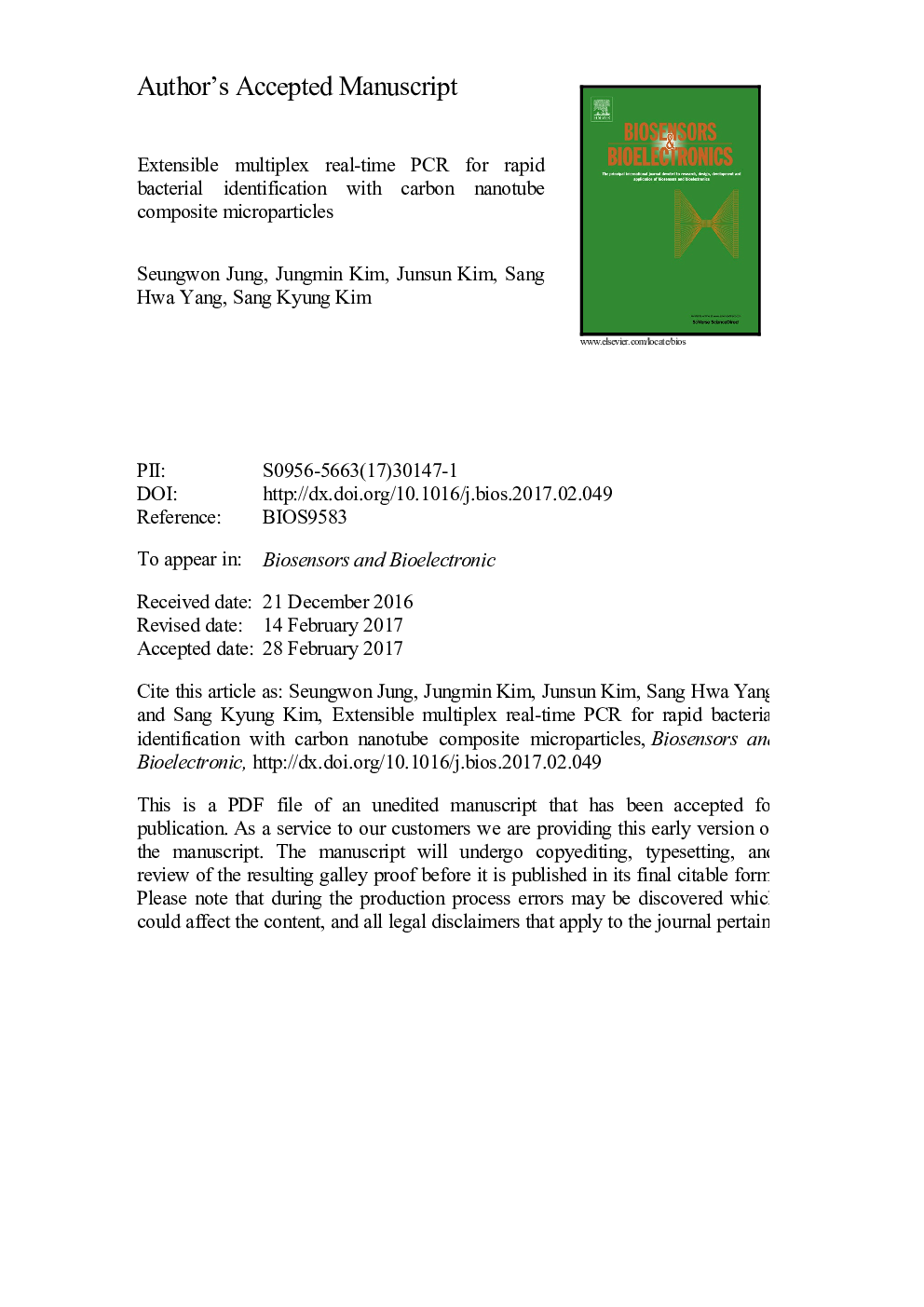| Article ID | Journal | Published Year | Pages | File Type |
|---|---|---|---|---|
| 5031051 | Biosensors and Bioelectronics | 2017 | 19 Pages |
Abstract
The early diagnosis of pathogenic bacteria is significant for bacterial identification and antibiotic resistance. Implementing rapid, sensitive, and specific detection, molecular diagnosis has been considered complementary to the conventional bacterial culture. Composite microparticles of a primer-immobilized network (cPIN) are developed for multiplex detection of pathogenic bacteria with real-time polymerase chain reaction (qPCR). A pair of specific primers are incorporated and stably conserved in a cPIN particle. One primer is crosslinked to the polymer network, and the other is bound to carbon nanotubes (CNTs) in the particle. At the initiation of qPCR, the latter primer is released from the CNTs and participates in the amplification. The amplification efficiency of this cPIN qPCR is estimated at more than 90% with suppressed non-specific signals from complex samples. In multiplexing, four infective pathogens are successfully discriminated using this cPIN qPCR. Multiplex qPCR conforms with the corresponding singleplex assays, proving independent amplification in each particle. Four bacterial targets from clinical samples are differentially analyzed in 30Â min of a single qPCR trial with multiple cPIN particles.
Related Topics
Physical Sciences and Engineering
Chemistry
Analytical Chemistry
Authors
Seungwon Jung, Jungmin Kim, Junsun Kim, Sang Hwa Yang, Sang Kyung Kim,
